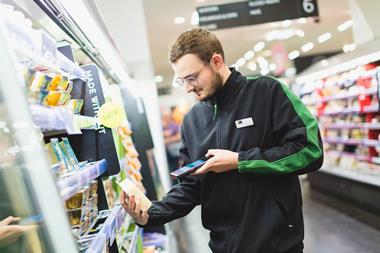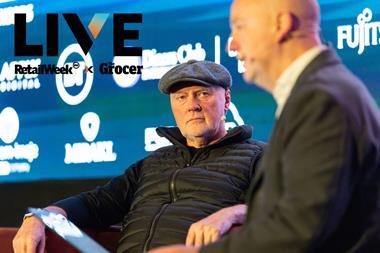Tesco’s announcement it is investing heavily in dark stores, along with Morrisons’ better-late-than-never entry into online retailing and Waitrose’s poaching of Ocado’s head of product and user experience, send clear signals that grocers are taking the threats technology can pose to heart.
While online retailing has been hugely destructive in other sectors of retail, supermarket chains are demonstrating their ability to both adapt to the new online environment and satisfy the many consumers who prefer bricks and mortar stores. But there are other disruptive threats that could easily undermine the model perfected by the multiples.
The first is institutional change in the structure of markets and supply. There are many non-perishable, bulky goods shoppers can easily predict demand for - toilet tissue, for example. A new competitor could easily pick off this market: offer free delivery, undercut price and render 30% of supermarket floorspace unnecessary.
Ocado is part-way there - but Amazon could easily take it on. There’s no fundamental reason a supplier like P&G should not sell direct in bulk, too.
Demographics are also key. Baby boomers are about to reinvent old age just as the ethically driven, digitally native ‘Generation Y’ are about to rewrite the rules of parenthood, careers and work-life balance. More women in the workplace, more men at home, virtual working: all will affect how we shop.
Environment and ethics are often viewed as having less direct impact on purchase. But the evolution of supermarkets has revolved around a car-dependent society, which is changing. The RAC Foundation argues that we have reached “peak car” usage, and Generation Y is not flocking to drive. Again, this may favour local and online shopping.
Threats come in many guises. apple never set out to turn the music industry on its head by developing the iPod. An uncertain future requires a ‘planned awareness’, where retailers scan other industries, innovations and societal changes in their quest to retain existing customers - and attract new ones.
Catherine Garland is director of TomorrowToday Strategic Insights
Sign in to comment on this article
Not logged in before? Register for FREE guest access today.
You will be able to:
- Read more stories
- Receive daily newsletters
- Comment on stories
Advert



















No comments yet